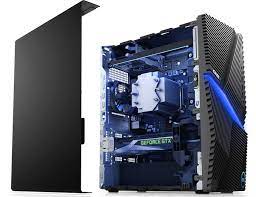25 of the Best Online MIT Courses You Can Take for Free

1. Introduction to Computer Science and Programming Using Python: Perfect for those who are new to computer science, this course teaches basic concepts using the Python programming language.
2. Linear Algebra: Learn about matrices, determinants, vector spaces, and eigenvalues in this foundational math course.
3. Classical Mechanics: Get a solid understanding of classical mechanics principles in this physics-based course, covering topics like energy, momentum, and motion.
4. Electricity and Magnetism: Explore electric and magnetic fields, forces, potentials, and circuits through this engaging physics class.
5. Circuits and Electronics: This electrical engineering course covers basic circuit components and their operation, as well as advanced concepts like amplifiers and filters.
6. Introduction to Algorithms: Dive into the world of algorithms with this comprehensive course covering both classical problems and recent advances in the field.
7. Artificial Intelligence: Learn about key concepts in AI research, including knowledge representation, machine learning, natural language processing, robotics, and computer vision.
8. Microeconomics: Understand the basics of microeconomic theory with this approachable course covering consumer choice, production theory, market structure, wage determination, and competitive behavior.
9. Game Theory: Delve into the principles of game theory—a tool used across various disciplines—to understand decision-making and strategy formulation in various contexts.
10. Differential Equations: Explore the solutions to differential equations through linear algebra techniques and various applications in science and engineering fields.
11. Computational Thinking and Data Science: Gain insights into tackling complex problems using computational techniques while developing skills in data analysis and visualization.
12. Principles of Synthetic Biology: Learn about foundational concepts shaping synthetic biology and dive into the design principles of genetic circuits.
13. Signals and Systems: Study signal processing techniques applicable to a wide range of fields like communications systems, control systems, audio processing, and biomedical instrumentation.
14. Single Variable Calculus: Build your mastery of single-variable calculus concepts such as differentiation, integration, and infinite series.
15. Molecular Biology: Understand the structure and function of biological macromolecules like DNA, RNA, and proteins in this informative course.
16. Introduction to Probability: Get acquainted with probability theory and learn how it is used in applications such as risk analysis, econometrics, and more.
17. Principles of Chemical Science: Explore the core principles underlying chemical science—including atomic structure, periodic trends, chemical bonding, and reactions—through a series of hands-on activities.
18. Solid State Chemistry: Discover the crystallographic perspective on materials chemistry by delving into concepts like structural determination, lattice symmetry, and electronic properties of solids.
19. Materials Systems Engineering: Investigate the relationships between material properties, structure, and processing methods to scale production without compromising the quality of a given material.
20. Systems Biology: Learn about various biological networks—from gene regulation to signal transduction—and their impact on cell function and cellular systems.
21. Dynamics and Control: Study the principles behind analyzing and designing mechanical systems that exhibit dynamic behavior using mathematical models.
22. Fluid Dynamics: Explore concepts such as fluid statics, kinematics of fluids in motion, dynamic similarity, and viscous flow through this fascinating course.
23. Statistical Learning: Delve into the world of statistical modeling techniques with an emphasis on machine learning applications across various domains.
24. Introduction to Aerospace Engineering: Embark on a journey through aerospace history while learning about fundamental topics in astronautics—including spacecraft design, orbital mechanics, propulsion systems, and atmospheric flight mechanics.
25. Software Engineering for Web Applications: Develop a strong foundation in software engineering principles for web application development through hands-on projects on user interface design, data management, security considerations, and more.






